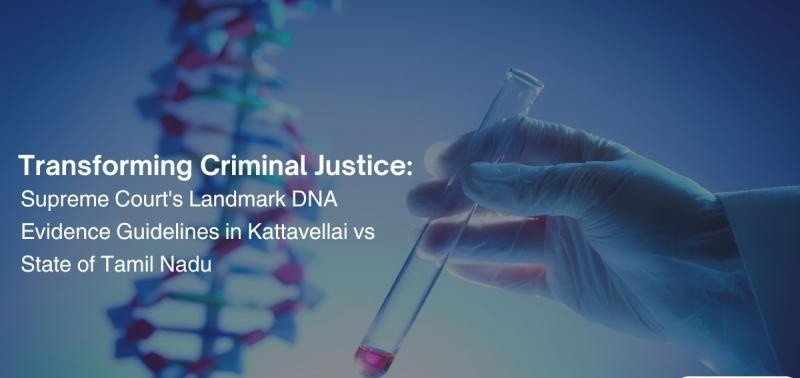PREVIOUS
Guidelines on DNA Evidence in Criminal Cases
September 19 , 2025
15 hrs 0 min
14
0
- In Kattavellai @ Devakar v. State of Tamil Nadu, the Supreme Court issued guidelines to ensure proper handling of DNA samples in criminal investigations.
- The court acted after finding delays and lapses in the chain of custody in a rape and murder case, raising concerns of sample contamination.
- The court directed all State DGP to prepare and distribute standardised forms for documentation and chain of custody.
- DNA sample collection must include proper packaging, FIR details, officer names, and signatures of medical staff, police, and witnesses.
- Investigating officers must ensure DNA samples reach the Forensic Science Laboratory within 48 hours; delays must be explained in writing.
- Samples stored during trial or appeal must not be opened or altered without court permission.
- A Chain of Custody Register must be maintained from sample collection until the case concludes and must be part of the court records.
- In past cases, such as Manoj v. State of Madhya Pradesh and Rahul Vs State of Delhi, the court rejected DNA reports due to contamination risks.
- The court clarified that DNA evidence is considered opinion evidence under Section 45 of the Indian Evidence Act and must meet scientific and legal standards.
- DNA alone is not substantive proof; its evidentiary value depends on proper collection, handling, and expert analysis.

Leave a Reply
Your Comment is awaiting moderation.


